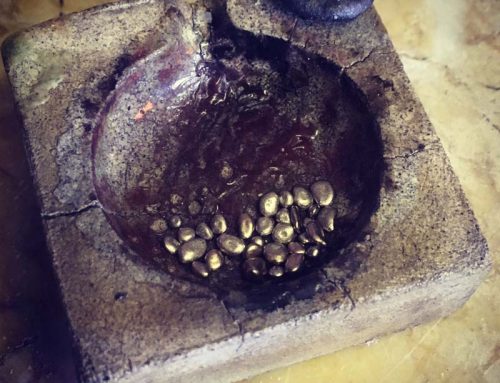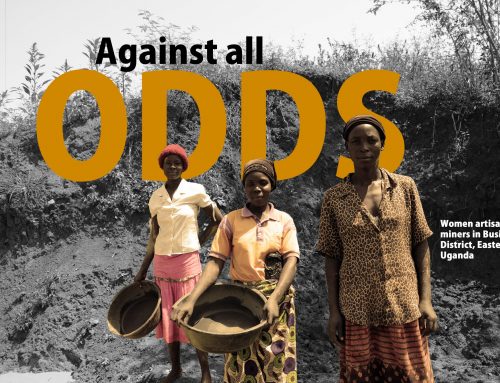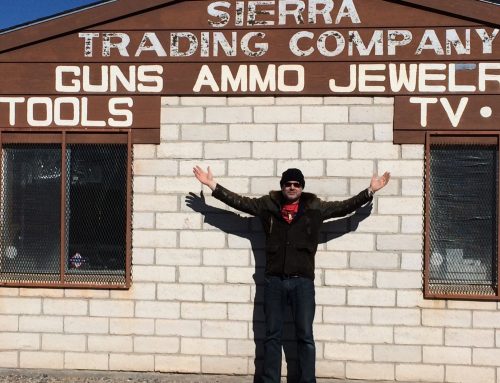The question is a simple one and goes something like this.
“I want to become more ethical in my business as a jeweller. What do I need to do?”
This is not an easy question to ask. In 2003 when I returned from visiting Oro Verde in Colombia I said to my colleagues at CRED Jewellery that we needed to set the target as a jewellery boutique to be 100% traceable, ethical and fairtrade within five years. We all looked at each other knowing that it was the right thing to do, but to be honest we were all daunted by the idea as we did not have a clue as to how to achieve it. In April of 2009, six years later CRED Jewellery delivered on its promise. What this demonstrates is the jeweller, the jewellery brand, boutique owner, in fact any size and shape of jewellery company can make the change. Below are a few handy tips that I believe will help jewellers to make the change.
1. Take your time over the change.
This may seem rather obvious, but it is true. The difference between success and failure in matters of ethical performance in jewellery is not, as is commonly assumed, the inability of the industry to deliver. It is the setting of unrealistic targets, not hitting them, becoming frustrated and giving up. I am convinced CRED could have achieved the change a lot earlier if we had planned better. By setting realistic targets and time frames you can take the pressure off. In a recent market study I conducted on behalf of Fairtrade Foundation, a lot of jewellers expressed an anxiety about the pressure they were under and how they could not possibly do ethical improvements because of time constraints, even though they also said they wanted to make the changes ‘because it was the right thing to do’. The truth is transforming your business to ethical suppliers and better ethical standards will take years, not months. Its a journey, a challenge, an adventure and a business opportunity.
2. Understand the world you are about to enter.
The world of ethics and fairtrade in jewellery is still in its relative infancy and can appear at first site to be very confusing. Whether it is blood diamonds or dirty gold campaigns, or the broader political and cultural drivers like the environmental crisis, global warming, conflict resources or the banking crisis our world is changing which means the environment of business will continue to be shaped by these and other dynamics. A key to turn for all jewellers is the ‘physical traceability’ key. Without physical traceability in the supply chain, the ethical discussions that everyone is having have no teeth and no substance. This is the question that everyone wants to avoid because no-one wants to be seen as an Emperor with no clothes. Asking this question is the starting gun on the ethical journey.
3. Map your supply chain.
The key areas to give attention to when beginning to address the ethical positioning of your supply chain is, a) Know who is in your supply line from mine to retail, b) Know the countries that you are touching through your supply chain, c) Make a note of where you draw a blank or get no answer. These questions are foundational questions you need to begin to ask to track your supply chain. Whether it is diamonds, gemstones or gold and silver, each material you touch will have a story and uncovering that story is the key to understanding the impact you are having.
4. Ask three simple questions.
Once you have worked out your supply chain from mine to retail (no easy task) then you can begin to address the next set of three questions,
a) What is the social impact of my supply chain? This looks at the human rights, labour rights, indigenous rights, health & safety and freedom of association that are or may be effected by your supply chain.
b) What is the environmental impact of my supply chain? Mining does not have to be a dirty business. All the products we use are mined and therefore our business has a direct impact on environments and eco-systems all over the world.
c) What is the economic impact of my supply? Are the people in your supply chain being paid a fair and decent wage, with time off?
Many jewellers are shocked when they find out that the majority of people employed in mining earn less than $2 a day. That much of the Ruby sold in Thailand comes from Burma (which is embargoed and therefore illegal), or that some large scale gold mining companies still ruin local communities and their environment in the name of profit. These realities are not very easy to digest for any of us, but they are truths we cannot avoid either.
5. Involve your customers in the process.
This may seem counter intuitive but its not. Understandably the big anxiety that jewellers face is ‘if they highlight attention to the challenges and difficulties, will it drive their customers away?’ In my experience (this is born out through market research in other products as well), if you talk to your customers about the challenges and communicate to them the steps you are taking to address the difficulties that may exist, they in turn respect you for the progressive steps you are taking and this builds a stronger customer relationship, creates a positive halo effect and breeds customer loyalty. It also attracts the new intentionally ethical, green, fairtrade customer.
Naturally in such a short article it is impossible to go into more details about how to do this but I hope that some of the tips above are able to get people off and running. Feel free to contact me if you would like anymore help, my blog site is beginning to list good suppliers and if you cannot find an answer to your specific question I am sure there is a way we can find it.
Greg Valerio
greg@gregvalerio.com
http://blog.gregvalerio.com





Thanks for the tips. It is very daunting trying to make big changes, especially when you’re still trying to get your business off the ground. The idea of making small changes over as period of time, rather than overnight seems much more achievable. Let’s hope so, anyway.